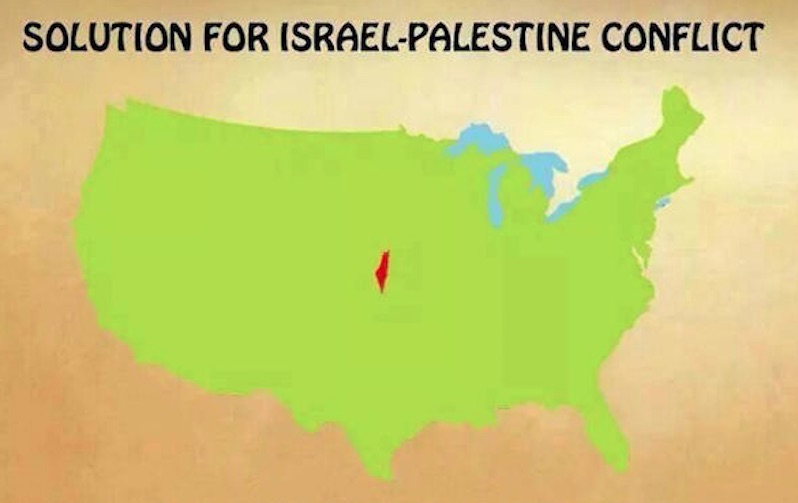How Not to Talk About the Nazi Era and Israel/Palestine
The fallout from a witch hunt in which British Labour leader Jeremy Corbyn and his supporters were accused of anti-Semitism reminds us that both sides flinging comparisons with Nazism at each other only distracts from the legitimate issue of Palestinian rights. 1
2
1
2
The Holocaust, in my opinion … must lead us to a deep reflection on the responsibilities of leadership, and on the quality of society. It must lead us to think thoroughly about how we — here and now — treat the foreigner, the widow and the orphan, and those similar to them. The Holocaust must lead us to think about our public life, and even more so, it must lead all those who can — not just those who want — to bear public responsibility. Because if there is something that scares us about the memory of the Holocaust, it is identifying nauseating processes that occurred in Europe in general and Germany in particular, 70, 80 and 90 years ago, and finding evidence of their presence here among us, today, in 2016. For there is nothing easier than hating the alien. Nothing is easier and more simple than provoking anxiety and horror. Nothing is easier and simpler than brutalization, jadedness and self-righteousness. On Holocaust memorial day, it is appropriate to discuss our own ability to uproot from our midst signs of intolerance, signs of violence, and self-destruction on the path toward moral deterioration.These comments were, as Golan surely anticipated, savaged by the Israeli right (that is, most of the country). The general staff issued a statement walking back Golan’s comparison. But no one should believe that he spoke without realizing what he was saying or without the prior approval of the chief of staff. Knesset member Haneen Zoabi turned down an invitation to speak at a Holocaust Memorial Day ceremony, saying:
How can you teach the lessons of the Holocaust when you don’t discern the frightening similarity between what is happening today all around us and what happened in Germany in the 1930s? The Holocaust obligates us not to be silent when racist laws are legislated, not to be silent when natives are exiled, not to be silent when their land and property is stolen, not to be silent when entire neighborhoods and entire families are bombed and wiped off the face of the earth, and not to be silent when political activists are put in administrative detention. … Out of respect for the Holocaust, its victims and its lessons, I appeal to you and beg you to deal critically with the Israeli usage, which exploits and minimizes the Holocaust; to educate Israelis to critical thinking and moral awareness; and to open their eyes to the ongoing oppression of the Palestinian people.Such outspokenness makes Zoabi the Palestinian political leader Israelis most love to hate. How can Israel’s deputy chief of general staff and the most militant spokesperson for Palestinian rights in the Knesset speak in such remarkably similar ways? Perhaps they see something that is willfully obscured in Washington and London. It is self-serving and hypocritical when Jews diminish other forms of oppression by judging them to be “not as bad” as the Holocaust. It is utterly illegitimate when the late Israeli Prime Minister Menachem Begin and his successors in the Israeli right compare Palestinians to Nazis. It is politically obtuse for advocates of Palestinian rights to compare Israel’s treatment of Palestinians — the ethnic cleansing of 1948 and 1967, the massacres and other war crimes, the massive violations of human rights, etc. — to the actions of Nazi Germany. While many forms of government-sponsored racism and popular anti-Arab street hooliganism may be comparable, the broader historical context and trajectory are not. Moreover, such comparison is certain to divert attention from the issue of Palestinian rights. Joel Beinin is the Donald J. McLachlan Professor of History and Professor of Middle East History at Stanford University and a past-president of the Middle East Studies Association of North America. He is the author of eleven books, most recently, Workers and Thieves: Labor Movements and Popular Uprisings in Tunisia and Egypt (Stanford, 2015). Your support is crucial...
As we navigate an uncertain 2025, with a new administration questioning press freedoms, the risks are clear: our ability to report freely is under threat.
Your tax-deductible donation enables us to dig deeper, delivering fearless investigative reporting and analysis that exposes the reality beneath the headlines — without compromise.
Now is the time to take action. Stand with our courageous journalists. Donate today to protect a free press, uphold democracy and uncover the stories that need to be told.






You need to be a supporter to comment.
There are currently no responses to this article.
Be the first to respond.